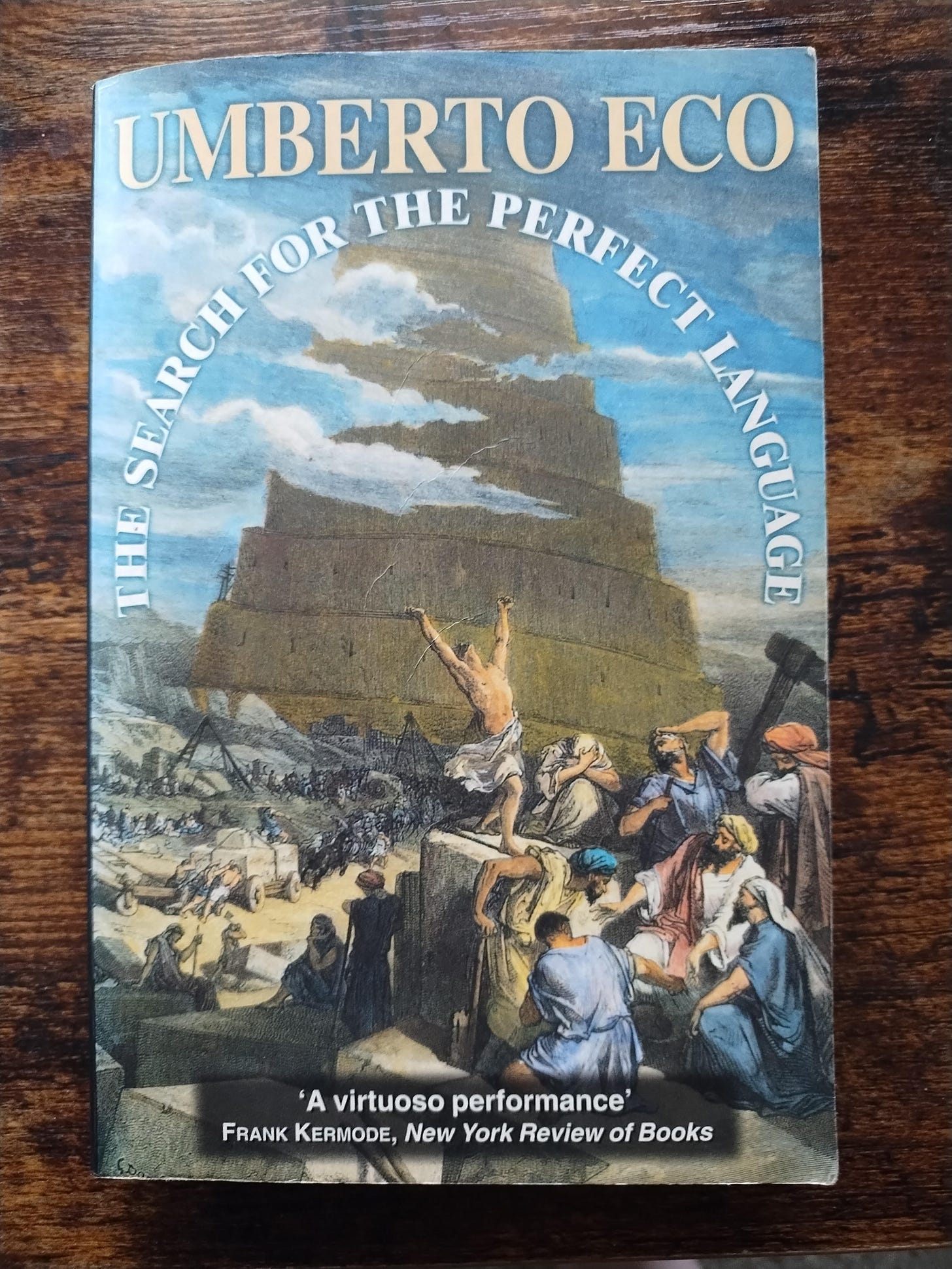The Search for the Perfect Language
In The Search for the Perfect Language, Umberto Eco explores humanity’s historical quest for a universal, ideal language, delving into philosophical, theological, and mystical dimensions of this pursuit. The book traces efforts from antiquity to the modern era to recover or construct a primordial language believed to embody divine truth and perfect communication. Mysticism plays a significant role in these endeavors, as many thinkers associated the perfect language with a prelapsarian state or direct communion with the divine. Eco examines how mystical traditions, particularly those rooted in Kabbalistic and esoteric thought, shaped speculations about language as a pathway to spiritual and cosmic unity.
One key mystical aspect Eco highlights is the Kabbalistic belief in the Hebrew language as a divine creation, imbued with sacred power. In Jewish mysticism, the Hebrew alphabet and the Torah’s words were seen as the building blocks of reality, with each letter holding cosmic significance. Kabbalists like Abraham Abulafia believed that manipulating Hebrew letters through permutations could unlock divine mysteries and facilitate spiritual ascent. Eco details how these ideas influenced Renaissance thinkers, who sought to rediscover or recreate this sacred language, viewing it as a tool for mystical insight and universal harmony.
Eco also explores the Christian mystical tradition, particularly the works of figures like Ramon Llull and John Dee, who blended theology with linguistic speculation. Llull’s combinatorial art, inspired by divine revelation, aimed to create a universal system of knowledge through symbolic letters and diagrams, reflecting a mystical vision of cosmic order. Similarly, Dee’s fascination with angelic languages, derived through mystical visions, posited a celestial tongue that could bridge human and divine realms. These efforts, Eco notes, were driven by a belief that a perfect language could transcend human limitations and restore a lost connection to God.
The book further examines how mystical ideas about language persisted in esoteric movements, such as Rosicrucianism and Freemasonry, which imagined a universal language as a key to hidden knowledge. Eco describes how these groups drew on Hermetic traditions, viewing language as a repository of ancient wisdom encoded by divine or primordial sages. The search for this language was not merely linguistic but spiritual, aiming to uncover truths obscured by the fragmentation of human tongues after the Tower of Babel. Eco underscores the tension between mystical aspirations and the practical challenges of creating such a language, which often remained elusive.
Ultimately, Eco argues that the quest for a perfect language reflects a deeper human longing for unity and transcendence, often expressed through mystical frameworks. While many attempts were grounded in spiritual ideals, they frequently collided with the diversity and evolution of human languages. The mystical impulse, Eco suggests, imbued these projects with profound ambition but also rendered them unattainable, as the divine language remained a symbol of an idealized, unreachable truth. Through this lens, The Search for the Perfect Language reveals how mysticism intertwined with linguistic theory, shaping a centuries-long dream of reconnecting with the divine through words.




